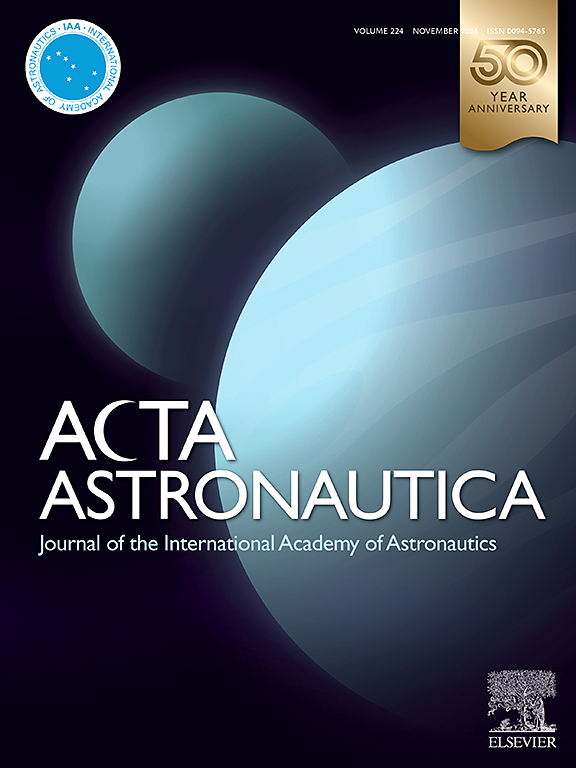Behavioral changes in Drosophila males after travel to International Space Station. Part II. Larvae vs. Imago
IF 3.1
2区 物理与天体物理
Q1 ENGINEERING, AEROSPACE
引用次数: 0
Abstract
This study aimed to establish a comprehensive behavioral profile of male Drosophila after a space flight to the International Space Station (ISS). Climbing, locomotor activity, and courtship behavior were examined after a 7.5-day space mission in Drosophila males. Behavioral evaluations postflight conducted both on Drosophila males, which, aged 1–2 days, had been sent to the ISS, and on males, who underwent development from first instar larvae to early pupal stages under space flight conditions. The results revealed that imago space travel resulted in a lasting decline in performance across all behavioral tests for no less than 13 days after landing. The larval development of Drosophila males during space travel leads to unstable behavioral issues that nevertheless go on up to 21 days after landing in such fruit flies. Space experience affects Drosophila nervous system function and changes the operating mode of walk and song central pattern generators (CPG). Future research will answer the question of which molecular genetic alterations induced by space flight factors are responsible for lasting post-space flight nervous system and behavioral changes.
求助全文
约1分钟内获得全文
求助全文
来源期刊

Acta Astronautica
工程技术-工程:宇航
CiteScore
7.20
自引率
22.90%
发文量
599
审稿时长
53 days
期刊介绍:
Acta Astronautica is sponsored by the International Academy of Astronautics. Content is based on original contributions in all fields of basic, engineering, life and social space sciences and of space technology related to:
The peaceful scientific exploration of space,
Its exploitation for human welfare and progress,
Conception, design, development and operation of space-borne and Earth-based systems,
In addition to regular issues, the journal publishes selected proceedings of the annual International Astronautical Congress (IAC), transactions of the IAA and special issues on topics of current interest, such as microgravity, space station technology, geostationary orbits, and space economics. Other subject areas include satellite technology, space transportation and communications, space energy, power and propulsion, astrodynamics, extraterrestrial intelligence and Earth observations.
 求助内容:
求助内容: 应助结果提醒方式:
应助结果提醒方式:


